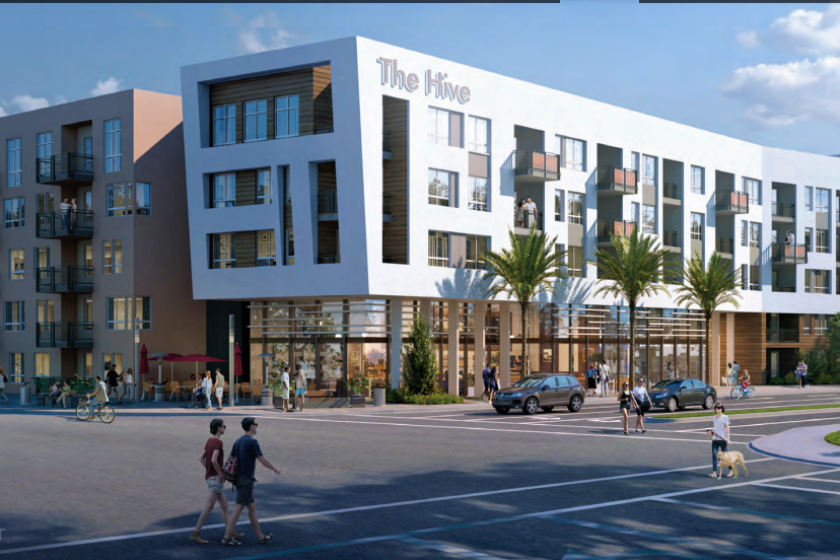Commentary: Taxing one homebuyer to subsidize another would only make for-sale housing more expensive

- Share via
Costa Mesa is working to implement a two-part inclusionary housing policy. One part would require a percentage of newly built rental housing to be reserved for low income households. The other would levy a fee on newly built, for-sale housing to create a homebuyer assistance program. While the goal is laudable, taxing one person’s new home purchase to subsidize another’s makes for-sale housing more expensive without benefiting the neediest members of our communities.
Newly built, for-sale housing in Costa Mesa will be infill housing, most likely townhomes and condos sought by first-time homebuyers stretching their budgets in a city of majority renters with a median home value of nearly $1.3M. Current homeowners with mortgages under 3% and a preference for “aging in place” means Baby Boomers aren’t moving. A first-time homebuyers’ best bet is to purchase new construction. Those are the homes that will be saddled with this subsidy that is really a tax. While the goal is laudable, there are more equitable ways to help first-time homebuyers.
Council members Tuesday took a look at Hive Live, a 14-acre development at 3333 Susan St., north of the 405 Freeway, that is seeking several entitlements made possible by the city’s Measure K.
A more equitable policy would socialize the cost of assistance over all the homeowners in Costa Mesa, not punish the ones who had the misfortune of being born 20 years too late. The city could levy a parcel tax on all homes to raise money for a down-payment assistance program. It could implement a transfer tax on existing home sales and use the funds for first-time homebuyers. The city could float a bond to raise money for affordable and workforce housing and dedicate a portion as grants or a revolving loan fund for first-time homebuyer assistance.
All of these would be more equitable than saddling the buyers of newly built housing with the costs of other aspiring homeowners seeking the same product. That is the definition of unfair, and it makes no progress towards making Costa Mesa a more equitable community. Because of demographic shift, first-time homebuyers are more likely to be people of color while existing homeowners are mostly white.
We can make progress toward equity when we create housing for low-income families in high-opportunity, well resourced communities, like Costa Mesa. If Costa Mesa’s leaders want to tax new housing to make progress towards the goal of equity, they should use all the funds leveraged on new construction to subsidize the cost of housing for truly low-income people. They should not tax one aspiring homeowner to help another. Anyone seeking to buy a new townhome or condo is just getting their foot on that first rung of homeownership. We shouldn’t make it harder for some to make it easier for others.
Elizabeth Hansburg is co-founder and director of People for Housing OC, the Yes In My Backyard (YIMBY) organization supporting new affordable and workforce housing in all neighborhoods across Orange County. She can be reached at [email protected].
All the latest on Orange County from Orange County.
Get our free TimesOC newsletter.
You may occasionally receive promotional content from the Daily Pilot.




